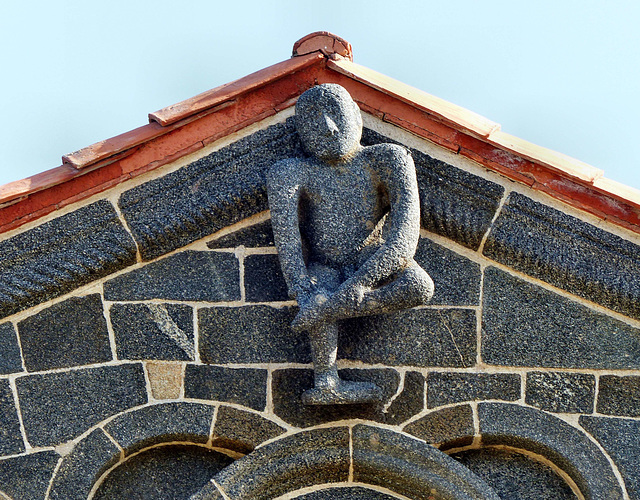Trani - Cattedrale di San Nicola Pellegrino
Grandson - Saint John the Baptist
Trani - Cattedrale di San Nicola Pellegrino
Troia - Concattedrale di Troia
Bari - Cattedrale di San Sabino
Milan - Basilica of Sant'Ambrogio
Pisa - Baptistry
Melle - Saint-Pierre
Otranto - Cattedrale di Otranto
Trani - San Giacomo
Solsona - Catedral de Santa María
Vitoria-Gasteiz - Basílica de San Prudencio
Lugo - Catedral de Santa María
Location
See also...
Keywords
Authorizations, license
-
Visible by: Everyone -
All rights reserved
-
102 visits
Aregno - Trinita e San Giovanni Battista


The island of Corsica is one of the 18 regions of France. It was colonized the Carthaginians, the Greeks, the Etruscans and the Romans. After the Roman empire collapsed, Corsica got invaded by the Vandals and the Ostrogoths. For a short while the island belonged to the Byzantine Empire, then the Franks granted the island to the Pope, in the early 11th century Pisa and Genoa together freed the island from the threat of Arab invasion. The island came under the influence of the Republic of Pisa, later it belonged to Genua for centuries. In 1755 after a long fight for independence from Genoa the independent Corsican Republic was proclaimed, but in 1769, when the island was conquered by France. As the areas near the coast over centuries have been threatened by attacks and raids of pirates many old hamlets and dwellings are wide inland, high in the mountains. So most of the old churches are in the mountains and some of them are hard to find.
Archeologists proved, that Aregno was occupied already in Roman times and was a regional center of the surrounding hamlets in medieval times. It is known for this church. "Trinita e San Giovanni Battista", located in the center of the graveyard, is a former "pieve" (parish church) erected in the first half of the 12th century. This is a "Pisan style" single nave church 16.60 mx 6.30 m, with a semicircular apse circular and a spectacular facade with extraordenary carvings.
Under the gable stands a "spinario", a person pulling a thorn out of his foot, an icon known since Greek and Roman times.
Archeologists proved, that Aregno was occupied already in Roman times and was a regional center of the surrounding hamlets in medieval times. It is known for this church. "Trinita e San Giovanni Battista", located in the center of the graveyard, is a former "pieve" (parish church) erected in the first half of the 12th century. This is a "Pisan style" single nave church 16.60 mx 6.30 m, with a semicircular apse circular and a spectacular facade with extraordenary carvings.
Under the gable stands a "spinario", a person pulling a thorn out of his foot, an icon known since Greek and Roman times.
- Keyboard shortcuts:
Jump to top
RSS feed- Latest comments - Subscribe to the comment feeds of this photo
- ipernity © 2007-2024
- Help & Contact
|
Club news
|
About ipernity
|
History |
ipernity Club & Prices |
Guide of good conduct
Donate | Group guidelines | Privacy policy | Terms of use | Statutes | In memoria -
Facebook
Twitter

Sign-in to write a comment.